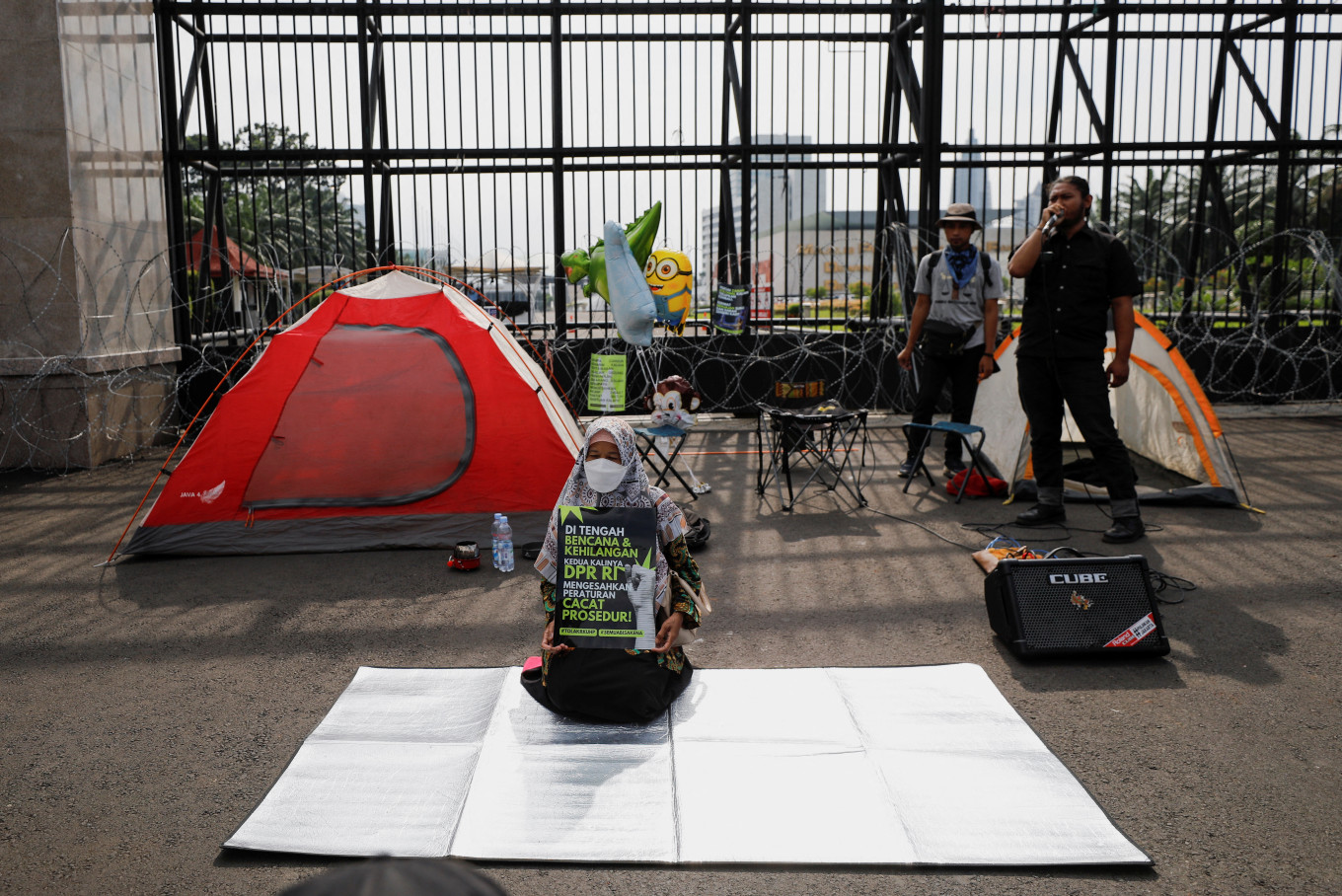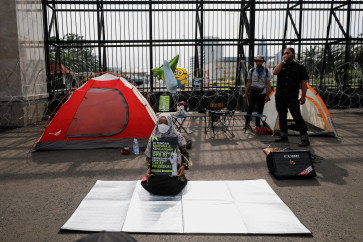Popular Reads
Top Results
Can't find what you're looking for?
View all search resultsPopular Reads
Top Results
Can't find what you're looking for?
View all search resultsBefore the storm: Civil liberties and the upcoming elections
The last four years could be perceived as a period of setback for the country’s democracy.
Change text size
Gift Premium Articles
to Anyone
 Activists take part in a protest outside the House of Representatives building in Jakarta on Dec. 6, 2022, after the legislature approved revisions to the Criminal Code that would ban sex outside marriage, cohabitation between unmarried couples, insulting the president and expressing views counter to the national ideology. (Reuters/Willy Kurniawan)
Activists take part in a protest outside the House of Representatives building in Jakarta on Dec. 6, 2022, after the legislature approved revisions to the Criminal Code that would ban sex outside marriage, cohabitation between unmarried couples, insulting the president and expressing views counter to the national ideology. (Reuters/Willy Kurniawan)
T
he year 2019 was remembered as a buzzing period in Indonesia because of several events and phenomena regarding democracy and human rights.
That year, President Joko “Jokowi” Widodo was reelected to the nation’s top office in a process that saw 894 poll workers die and over 5,000 others fall sick from exhaustion, according to the General Elections Commission (KPU). There were also recurring racist incidents against Papuan students, leading to the #Papuanlivesmatter movement in some parts of the country. Furthermore, the largest protest and social movement since the early Reform period occurred in response to controversial bills such as amendments to the Corruption Eradication Commission (KPK) Law, the Criminal Code and the Coal and Minerals Law.
Those moments helped erode democracy and human rights values, specifically civil liberties. The first symptom of this phenomenon is the orientation of Jokowi's second term as President toward the development paradigm in the form of human resources and infrastructure.
According to Prezworski and Alvarez (1996), the level of development affects not the likelihood of transition to democracy but the likelihood of transition back to authoritarianism.
The second symptom is the rise of the autocratic legalism trend, which according to Corrales (2015) is the principle of creating and establishing law and policy without meaningful and worthwhile public participation and with elements of illegality. The third symptom is the politicization of legal instruments, leading to judicial harassment and acts of criminalization. And the final symptom is a narrative that seeks to delegitimize civil society, academics and vulnerable groups.
The downfall of civil liberties, which is quite prevalent, is linked to the current regressive condition of democracy (Wiratraman, 2023). Based on civic space monitoring data from CIVICUS in 2022, Indonesia is in the obstructed category (46 of 100). This was confirmed by the Economist Intelligence Unit (EIU), which ranks Indonesia in the “flawed democracy” group with a score of 6.71.
The United Nations Guidance Note for Protection and Promotion of Civic Space provides three important components of civil liberties as prerequisites for strengthening open civic space, namely participation, protection and promotion. Thus, the state must play a role in actively promoting and protecting fundamental rights (freedom of opinion and expression, freedom of association and freedom of peaceful assembly) to ensure an open and dynamic civic space that results in the refinement of civil liberties.


















